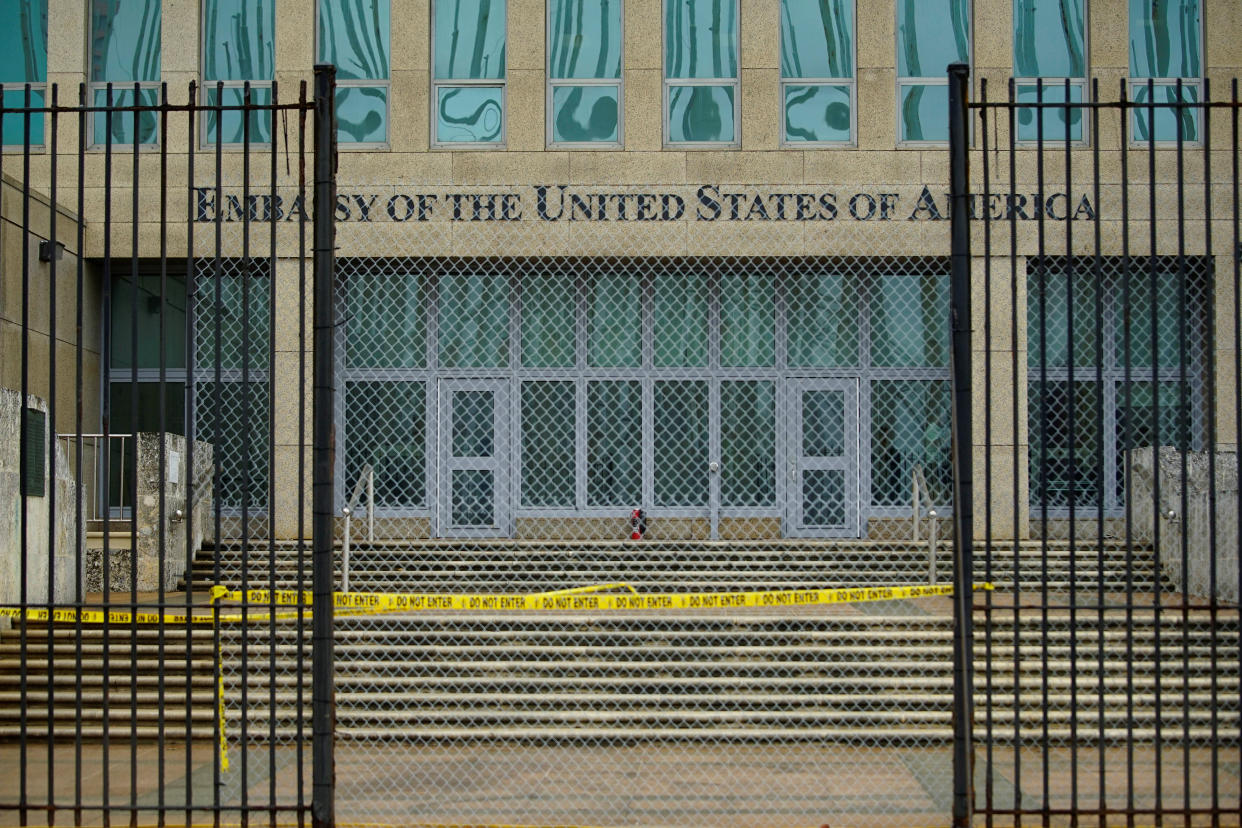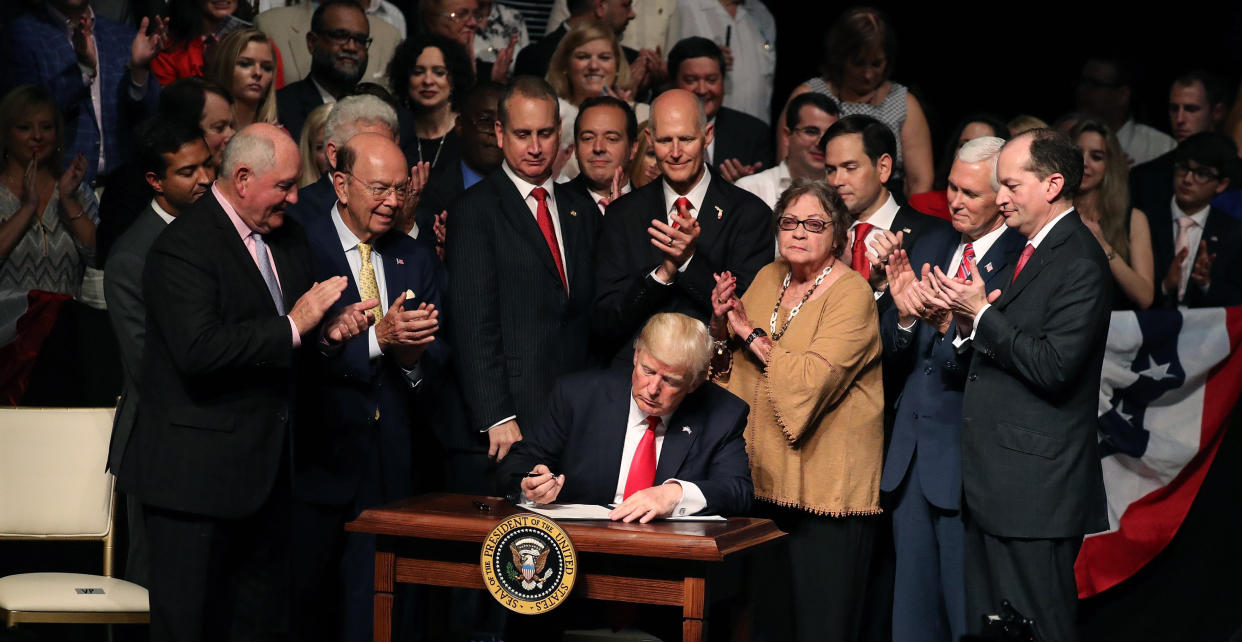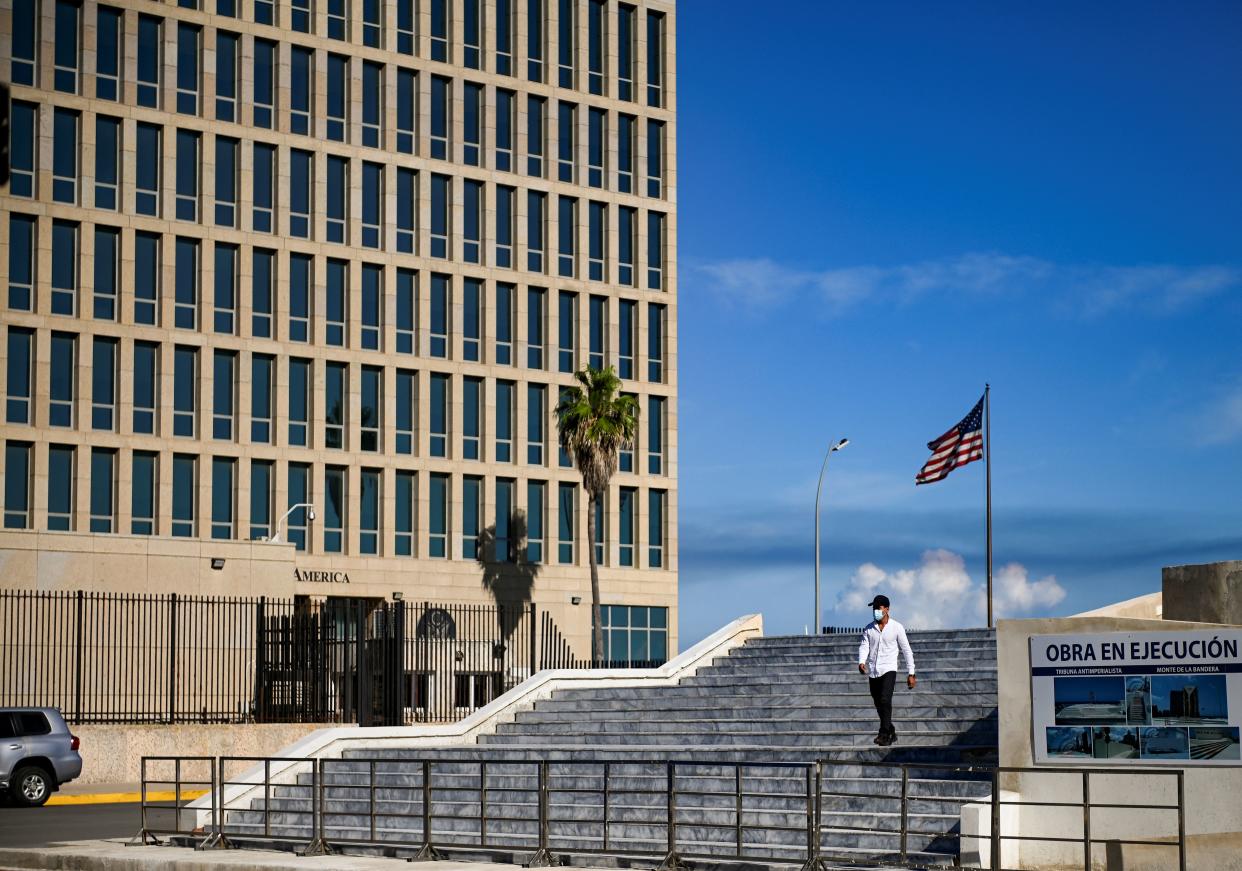U.S. intel officials: 'Very unlikely' that foreign adversary caused Havana syndrome

After a years-long investigation that spanned the globe, the U.S. intelligence community has concluded that it is “very unlikely” a foreign adversary caused Havana syndrome, the range of debilitating medical symptoms afflicting U.S. diplomats and spies.
In a briefing for reporters on Tuesday, senior U.S. intelligence officials said they could find “no credible evidence” that any hostile U.S. adversary — including Russia, China or Cuba — even has a weapon capable of causing symptoms of Havana syndrome.
“The available intelligence consistently points against the involvement of a foreign adversary,” said one senior official. “We have a lot of evidence that points the other way.”
The new findings — part of an official new U.S. intelligence community assessment — represent the latest effort by the government to explain a perplexing disorder whose symptoms including dizziness, vertigo, extreme fatigue and in some cases even brain injuries, which have been reported by as many as 1,500 U.S. government employees in 96 countries in recent years.
First reported among diplomats and spies serving in Cuba in December 2016 and early 2017 — hence the moniker Havana syndrome — the issue was quickly cast by top U.S. officials and much of the media as evidence of likely hostile actions by foreign adversaries, through the use of some unexplained sonic or microwave weapon.
Former President Donald Trump’s first secretary of state, Rex Tillerson, called it the result of targeted attacks against U.S. diplomats and withdrew most of the personnel from the newly reopened U.S. Embassy in Cuba.

The reports then spread around the globe, with diplomats and spies serving in China, Austria, Germany, Colombia, Vietnam and elsewhere reporting similar symptoms, leading to reports — widely promoted by mainstream news organizations — that these incidents pointed to a global campaign of harassment or even an act of war, with Vladimir Putin’s Russian intelligence service identified as the most likely culprit.
The reports prompted Congress in 2021 to pass the so-called HAVANA Act (for Helping American Victims Afflicted by Neurological Attacks) to compensate those experiencing the most serious of these symptoms with up to $187,000 in government payments under the assumption that they had been harmed in the course of duty by a hostile attack.
One of the bill’s sponsors, Republican Sen. Susan Collins of Maine, at the time called on the Biden administration to “identify and stop the heartless adversary who is harming U.S. personnel.”
But as Yahoo News reported last year in a three-part “Conspiracyland” podcast, U.S. officials were becoming increasingly skeptical of the idea that any foreign adversary was involved and instead pointed to more likely explanations, including environmental factors, preexisting medical conditions and a social contagion influenced by widespread reporting on the phenomenon.
The new intelligence community assessment essentially validates that idea. Officials cautioned, however, that there was not complete unanimity among the seven U.S. intelligence agencies that participated in the assessment. While most of the agencies endorsed the finding that foreign involvement was “very unlikely,” three of them had only “moderate confidence” in the judgment and two said they had “low confidence” based on collection gaps in the available intelligence.
“Needless to say, these findings do not call into question the very real experiences and symptoms that our colleagues and their family members have reported,” Avril Haines, director of national intelligence, said in a statement. “Officers did exactly what we asked them to do: to take our guidance seriously and report suspicious experiences and symptoms.”
At the briefing, one U.S. official stressed the role of environmental factors, such as malfunctioning computer mice or air conditioning systems. The senior U.S. intelligence official also noted that the medical symptoms being reported were diverse and inconsistent, casting doubt on the idea that there was a common cause.

The official also noted that as media reporting of Havana syndrome has subsided over the past year, reports among U.S. diplomats and spies experiencing such symptoms have also dropped significantly, suggesting that some, if not many, of the reports may have been influenced by the power of suggestion from news media coverage.
Moreover, the senior official noted that there was increasing evidence that “pointed away” from the idea of hostile foreign involvement. U.S. intelligence indicated that foreign powers were confused by the reports of Havana syndrome, with some suspecting that the entire issue was being pushed by U.S. intelligence agencies as some sort of foreign plot to embarrass them.
Meanwhile, there were other telling signs. Although the Russian Federation has long been viewed as the most likely perpetrator — based on indications that the Russians had been studying the effects of microwaves on the human brain — U.S. officials could find no sign that it actually possessed such a weapon.
The senior official also said there have been no reports of any Havana syndrome attacks in Ukraine, where the Russians have the most at stake, with no indication of such symptoms being reported by either U.S. or Ukrainian personnel.
